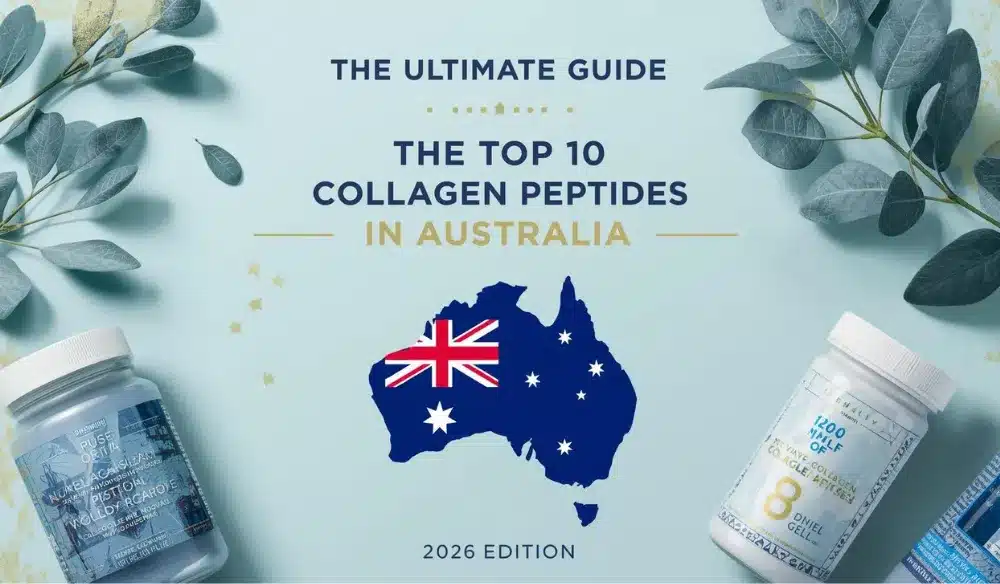Learning how to start a private label supplement business in the U.S. taps into a booming market projected to exceed $200 billion by 2025, driven by consumer demand for health, beauty, and wellness products like collagen, probiotics, and plant-based supplements. This model allows entrepreneurs to create branded products by partnering with manufacturers, focusing on marketing and sales without building production facilities. With startup costs of $10,000 to $50,000 and profit margins of 30-50%, success depends on strict compliance with U.S. Food and Drug Administration (FDA) regulations, including the Dietary Supplement Health and Education Act (DSHEA) and Good Manufacturing Practices (GMP). This guide details the steps to launch your business in the U.S., with a special focus on labeling requirements, sourcing from Chinese suppliers (highlighting Collagensei), and why labeling should be completed in the U.S. to avoid risks associated with China-based labeling.
1. Market Research and Niche Selection
The foundation of a successful supplement business is identifying a profitable niche in the competitive U.S. market, where trends like sustainability and personalized nutrition dominate in 2025.
- Analyze Demand: Use tools like Google Trends, Statista, or Amazon Best Sellers to identify high-demand products. For example, collagen supplements (valued at ~$5 billion in 2024) and probiotics are trending for beauty and gut health. Target specific audiences, such as women aged 25-45 for skin health or seniors for joint support.
- Competitive Analysis: Study competitors on platforms like Amazon or Reddit (e.g., r/Supplements) to find gaps. Avoid oversaturated categories like generic multivitamins; instead, focus on niches like vegan collagen or sustainably sourced Omega-3.
- Validate Demand: Test ideas with small-scale social media ads (budget $200-$500) on Instagram or TikTok. Ensure products are evidence-based and avoid health claims prohibited by the FDA (e.g., “cures arthritis”).
This step requires minimal investment (mostly free tools) but is critical for aligning your products with market needs.

2. Legal and Regulatory Requirements
The U.S. supplement industry is regulated by the FDA under DSHEA, which does not require pre-market approval but enforces strict labeling and quality standards. Non-compliance can lead to fines or recalls.
- Business Registration: Register an LLC or C-Corp using services like LegalZoom (cost: $100-$500) to protect personal assets.
- FDA Compliance: Supplements must adhere to DSHEA and GMP (21 CFR Part 111). Key requirements include:
- GMP-certified manufacturing.
- Accurate labeling (detailed below).
- No disease claims (e.g., “treats cancer”); structure/function claims (e.g., “supports immunity”) are allowed with scientific backing.
- Trademarks and Insurance: Register your brand with the U.S. Patent and Trademark Office (USPTO, $225-$400 per class). Purchase product liability insurance ($500-$2,000/year) to mitigate recall or lawsuit risks (e.g., 2023 saw ~1,000 FDA-reported supplement complaints).
- State Regulations: Some states, like California, require additional licenses; check with local authorities.
Hire an FDA compliance attorney ($1,000-$3,000) to review your setup and avoid costly errors.
3. Finding Reliable Manufacturers
Choosing the right manufacturer is critical. U.S. manufacturers (e.g., NutraScience Labs) offer reliability but higher costs ($5-$15 per bottle), while Chinese suppliers provide lower prices ($2-$5 per bottle) and flexible minimum order quantities (MOQs, 500-1,000 units). Sourcing from China, however, requires rigorous quality control.
How to Select Chinese Suppliers:
China accounts for ~40% of global supplement raw material exports, offering cost savings of 30-50% compared to U.S. manufacturers. Key steps include:
- Screening Criteria:
- Choose GMP-certified factories with third-party testing (e.g., NSF, USP, or SGS) to ensure purity and absence of contaminants like heavy metals.
- Use platforms like Alibaba, Made-in-China, or trade shows (e.g., SupplySide West) to connect with suppliers. Request samples ($50-$200), export certifications, and contract templates.
- Evaluate MOQs (500-2,000 units), production timelines (4-12 weeks), and per-unit costs ($2-$10).
- Risk Management:
- Verify raw material sources (e.g., collagen from sustainable fisheries) to avoid pesticide or contaminant issues.
- Sign detailed contracts specifying quality standards, delivery timelines, and penalties for non-compliance (hire a bilingual lawyer, $500-$1,000).
- Budget for shipping (sea freight: $500-$2,000 per container; air freight is pricier) and U.S. tariffs (3-6%). File an FDA “Prior Notice” for customs clearance ($100-$500).
- Spotlight on Collagensei:
Collagensei, part of Gensei Global Industries Co., Ltd. (based in Hefei, China, established 2010), specializes in hydrolyzed collagen, protein powders, and vitamins, exporting to over 20 countries, including the U.S., Canada, and Australia. It holds ISO, Halal, and GMP certifications and operates warehouses in California and Massachusetts for faster U.S. delivery (7-14 days). Collagensei offers private label services, including white label and custom formulations (e.g., odorless collagen for beauty supplements), with low MOQs (500 units) and over 4,000 formulation options. Its FSSC 22000 certification and in-house testing facilities ensure quality, but U.S. third-party testing (e.g., Eurofins, $100-$500 per batch) is still recommended. Contact Collagensei to request samples and verify U.S. inventory availability. Their U.S. warehouses reduce shipping delays, making them a strong choice for collagen-based products.
Advantages and Risks of Chinese Suppliers:
- Advantages: 30-50% cost savings, flexible MOQs, and suppliers like Collagensei have U.S. market experience.
- Risks: In 2023, the FDA reported recalls of Chinese-imported supplements due to contaminants or labeling errors. Mitigate with third-party testing and U.S.-based labeling.
4. Developing Your Brand and Products
Your brand and product lineup differentiate you in a crowded market, and labeling is a critical component of both compliance and consumer appeal.
- Brand Identity: Design a logo and packaging using Canva or Fiverr ($500-$2,000). Opt for sustainable materials (e.g., recyclable bottles), as 60% of U.S. consumers in 2025 prioritize eco-friendly packaging.
- Product Selection: Launch 3-5 products, such as collagen powder (Collagensei’s specialty), probiotics, or Omega-3, based on market trends. Require manufacturers to provide third-party lab tests for purity and potency.
- Labeling Design and Compliance:
- FDA Requirements (21 CFR Part 111):
- Supplement Facts Panel: List ingredients, serving size, amount per serving, and % Daily Value (DV). Include allergens (e.g., fish-derived collagen).
- Mandatory Disclaimer: “These statements have not been evaluated by the FDA. This product is not intended to diagnose, treat, cure, or prevent any disease.”
- Additional Information: Manufacturer name, address, lot number, expiration date, and storage instructions.
- Avoid disease claims (e.g., “treats arthritis”); use structure/function claims (e.g., “supports joint health”) backed by science.
- Design Considerations: Ensure labels are clear, with FDA-compliant font sizes (hire a designer, $200-$1,000). Include a UPC barcode (~$20) and your brand logo for professionalism.
- Recommendation: Complete Labeling in the U.S.: Import white label products (unbranded or generic labels) from China and finalize labeling in the U.S. using local packaging companies (e.g., PackSavvy Solutions, $0.50-$2 per bottle) or third-party logistics (e.g., ShipBob). Process:
- Design FDA-compliant labels, reviewed by a regulatory consultant (e.g., Regulatory Compliance Associates, $500-$2,000).
- Conduct third-party testing in the U.S. ($100-$500 per batch) to verify product contents match the label.
- Print and apply labels locally for high-quality presentation and brand consistency.
- Risks of Labeling in China:
- Compliance Errors: Even reputable suppliers like Collagensei may miss subtle FDA requirements (e.g., incorrect font size or missing warnings), risking customs detention or fines (thousands of dollars). In 2023, ~10% of FDA supplement recalls involved labeling errors.
- Quality Mismatches: Formulation changes during production (e.g., collagen potency variations) can render labels inaccurate, increasing recall risks.
- Shipping Damage: Labels applied in China may get damaged during sea freight (4-6 weeks), affecting product appearance.
- Traceability Issues: Errors discovered post-import are harder to fix, requiring costly rework or disposal.
- Recommendation: Even if China applies final labels, conduct U.S.-based spot checks (5-10% of batches) to ensure compliance. Budget $1,000-$3,000 for local labeling and testing to mitigate risks.
5. Setting Up Sales and Distribution
Effective sales channels maximize reach in the U.S. e-commerce-driven market.
- E-commerce Platform: Build a website on Shopify (from $39/month) with Stripe or PayPal integration. Optimize for SEO (e.g., “best collagen supplements 2025”).
- Marketplaces: Sell on Amazon FBA ($39.99/month + fees) or Walmart Marketplace for instant traffic. Optimize listings with high-quality images and 5-10 reviews.
- Distribution: Wholesale to retailers like GNC or use dropshipping to minimize inventory. Use third-party logistics like ShipBob ($2-$5 per package) or start with a small warehouse.
Aim for $100,000 in first-year sales, starting small to test the market.
6. Marketing and Launch
Marketing drives growth, with 70% of U.S. supplement marketing budgets in 2025 allocated to digital channels.
- Strategy: Run ads on Instagram/TikTok ($1,000-$5,000/month) and partner with influencers ($100-$500/post). Create SEO-optimized content (e.g., blog posts like “Top Collagen Benefits 2025”).
- Launch: Offer discounts (e.g., 20% off bundles) to attract early customers and build reviews.
- Compliance: Avoid false claims in ads (e.g., “rapid weight loss”). Hire a lawyer ($500-$1,000) to review marketing materials.
7. Potential Challenges and Scaling
- Challenges: Chinese supply chains may face delays or quality issues; diversify suppliers (e.g., Collagensei + U.S. backup). Labeling errors can trigger recalls, so budget $5,000 for contingencies.
- Scaling: Reinvest profits to expand product lines. Join the Natural Products Association for industry insights.
- Financing: Use SBA loans or crowdfunding (e.g., Kickstarter) to cover $10,000-$50,000 startup costs.
8. Conclusion and Recommendations
Starting a private label supplement business in the U.S. requires strategic planning, reliable suppliers, and strict FDA compliance. Sourcing from China, particularly from experienced manufacturers like Collagensei, offers cost savings and flexibility, but quality control is non-negotiable. Labeling is a critical compliance and branding step, and we strongly recommend completing it in the U.S. to ensure FDA adherence, verify product quality, and maintain a professional image. Risks of labeling in China—such as compliance errors, quality mismatches, and shipping damage—can lead to costly setbacks. Budget $10,000-$50,000 initially, launch 3-5 products (e.g., collagen via Collagensei), and leverage Amazon and social media for rapid market entry. Contact Collagensei (sales@collagensei.com) for samples and verify their U.S. inventory. Work with U.S.-based regulatory consultants to ensure success.
referenced
Citation ID: 0 Source: Dietary Supplements Guidance Documents & Regulatory Information | FDA URL: https://www.fda.gov/food/dietary-supplements/guidance-documents-regulatory-information Description: Provides FDA guidance on labeling, GMP, and regulatory compliance for dietary supplements. Citation ID: 1 Source: The Importance of Private Label Dietary Supplement Certification | NSF URL: https://www.nsf.org/knowledge-library/importance-private-label-dietary-supplement-certification Description: Discusses the importance of certifications like GMP and NSF for private label supplements, relevant to supplier selection. Citation ID: 3 Source: Dietary Supplement Labeling Guide: Chapter IV. Nutrition Labeling | FDA URL: https://www.fda.gov/food/dietary-supplements/dietary-supplement-labeling-guide-chapter-iv-nutrition-labeling Description: Details FDA requirements for the Supplement Facts panel and labeling compliance. Citation ID: 5 Source: Dietary Supplement Labeling Guide: Chapter I. General Dietary Supplement Labeling | FDA URL: https://www.fda.gov/food/dietary-supplements/dietary-supplement-labeling-guide-chapter-i-general-dietary-supplement-labeling Description: Covers general FDA labeling requirements for dietary supplements, including disclaimers.



